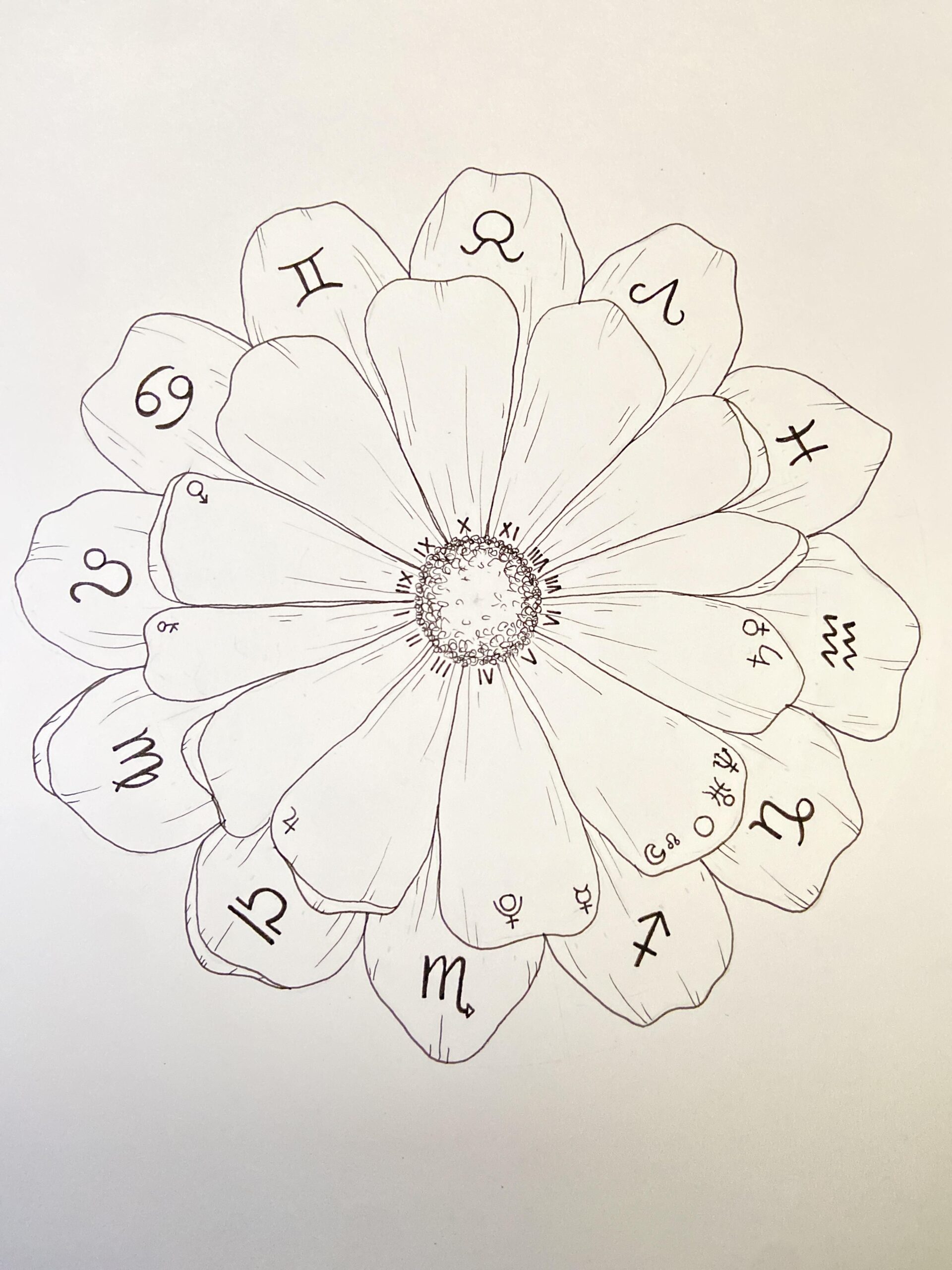
The Difference: Progressions Vs Transits
When we use astrology to make predictions, we use two methods that are very different from each other: transits and progressions. The difference between a progression and a transit is that a transit shows where a planet is at a certain point in time as it moves around the sun. On the other hand, a progression is a symbolic movement that has nothing to do with where the planets are actually located in the sky at the time it happens. The dynamics of progressions and transits seem to be quite similar. Both are indications that something is occurring in the psyche, which may or may not manifest in the actual world.
Astrological transits are a method of interpreting the ongoing movement of the planets as they transit the horoscope. We each have a unique birth chart that contains the placement of planets at the time of our birth and are referred to as natal placements. Because the planets are constantly moving, a ‘transit’ occurs when a planet in movement comes into contact with one of the natal positions of the planets or angles when we were born.
Dane Rudhyar says,
It is to all these impacts, pressures, and influences of the environment (psychic and mental as well as geographical, cultural, and social) that the transits refer in astrology. These transits constantly exert a pressure upon our permanent and essential identity, symbolized by our birth-chart. The pressures may cause pleasure, happiness, exaltation — or pain, misery, and depression. Some may strengthen basic factors in our nature; others may tend to disintegrate our personality. But, generally speaking, they are that which every day and year after year challenges us. What is it in us which will accept these challenges and make of them opportunities for becoming more and more that which we potentially are?”
Astrological progressions are a type of predictive astrology in which each day after birth corresponds to one year in a person’s life, in accordance with the sun’s movement of one degree per day. The positions of the planets 24 hours after birth reflect an individual’s life quality at one year old, 48 hours at two years old, and so on.
Progressions: The moment of the “first breath” of the human organism establishes, as it were, the person’s permanent individual character underneath all subsequent changes; this is the birth-chart. But changes are incessant after birth. The earth rotates; the Sun, Moon, and planets move on in their orbits and the astrologer claims that what happens in the solar system during the 24 hours after birth somehow gives us basic clues to changes occurring in the human being during the whole first year of his life, each hour corresponding to a fortnight of actual existence.
Within or Without?
Transits, in contrast to progressions, reveal the actual forces and energy in the world that have an effect on your psyche from without. Planets that are actually in motion are called transits. Some believe that progressions only reveal internal changes because they are not true planetary motions, however this is not always the case, and progression charts can also reveal external events and circumstances.
The Illusion of Time: Inner and Outer
Everyone has a certain amount of time to live, and in that time, they go through many different stages. Astrologers use these movements or cycles to separate the different stages of life, giving them a clear picture of how things happen from the beginning to the end. Planetary motions, transits or progressions, can help you understand when you might be going through changes in your experiences or feelings that are affecting you at a certain time. Rudhyar thought that the big differences between astrologers who used progressions or transits were because some people had an introverted view of the world and others had an extroverted view. “When progressions are subtle, they can make an astrologer look to transits for powerful insights and to find out what is going on in a person’s life.”
In the unconscious, there is no time; past, present and future are simultaneous and the seed and the fruit bearing plant are one. When, wherefore, we try to predict an event from a progression we cannot do so. A progression does not reflect a concrete occurrence so much as it does the need for inner recognition of something for integration of some dormant quality into conscious awareness. On the other hand, the evet is generally so perfectly apt for the moment that, having once deciphered its meaning, we could not improve upon it.
Use Both Progressions and Transits
Your birth chart is a signifier of how your life will go and shows where you are at the beginning of your life cycle. Jung called it the “individuation process,” which might be a better way to explain it because it shows how a person can become all that they can be. When it comes to predictive astrology, watching both progressions and transits can help you get a clearer picture of what’s going on in your life. Both progressions and transits give you information about what will happen in your life in the future. Using astrological prediction, you can learn about the times to come and the patterns in your life. But you can’t be sure about what will happen or how you will react to any of these things.
The progression of a planet, moving forward in the days after birth and arriving at an exact contact with the birth placement of another planet, is, in a sense, like the bell indicating coffee is ready. The progression does not “make” anything happen, for progressions are purely symbolic and have no basis in objective reality. Rather, they are synchronous with some psychic event, some constellation of specific configuration of energy – the archetypes – in the unconscious. What a progression indicates is that the time is ripe for certain things to become conscious, in accordance with the basic growth pattern of the seed. Inherent in the seed are both the essential qualities and the growth pattern.
The Timing of Events: Progressions and Transits
Tracy Marks says,
Many astrologers believe that transits indicate external events and that progressions indicate psychological experience. This attitude presupposes the separation between inner and outer life, which cannot be considered apart from each other. Transits, more so than progressions, are indeed experienced on an external level before they are confronted internally. But if we are deeply attuned to our own psyches, we may experience them within as they are approaching, and may, to some extent, choose the manner in which they will manifest outwardly in our lives. We will experience the transiting planet as a facet of ourselves now demanding our attention, requiring us to acknowledge it and integrate it into our life structure.
According to Alexander Ruperti,
When I first became interested in astrology over forty years ago, there was a controversy raging among astrologers concerning the relative value of the progressions and transits which still persist. The current pseudo-scientific trend in astrology has led many astrologers to give up their use of progressions, and to rely exclusively on transits. Other astrologers use both sets of measurements but confuse them, considering progressions and transits to all refer to external events. The humanistic astrologer uses both progressions and transits but defines them as distinct categories. Progressions are an internal or subjective process of growth of individual potential. They deal with the gradual transformations which occur as the purpose and character of the individual revealed in the natal chart are realized through the process of life itself. Progressions show how the entire natal structure unfolds itself, according to the individual need and rhythm of development so that what is an abstract archetypal identity at birth may progressively become a fully actualized and integrated person. There is no outside pressure involved here, that is provided by the transits. Progressions deal with the transformations of the rhythm of the self…External pressures are measured by the transit cycles, which show how the conscious mind may be developed by experiencing a multitude of impacts and relationships…It is only through confrontations that we grow. Transits may cause pleasure, happiness or even exaltation, while others can cause pain, misery and depression.
Finally Liz Greene says,
The individual progressions of the horoscope depict symbolically the inner timing of psychic events. They indicate in succinct form what areas of the basic potential expressed by the birth chart are going to be constellated – this, afforded opportunity for conscious recognition and integration – at different periods of life. As with other aspects of astrology, one may well ask why it is necessary to consult a horoscope to find out what one’s psyche is up to. Probably it is necessary because we have so little contact with, so little awareness of, the matrix in the unconscious, shaping our lives and making our choices for us in accordance with the imperatives of the self. Admittedly, some highly intuitive people have a great sensitivity to the inner timing that regulates endings and beginnings of phases, a knack for diving the moving forces of the unconscious; and as one of the intuitive’s basic characteristics is his love of flux and possibility, changing cycles do not surprise him.



















 Sun Square Pluto Synastry: You’ve Got That Power Over Me
Sun Square Pluto Synastry: You’ve Got That Power Over Me
 Scorpio’s Cold Withdrawal
Scorpio’s Cold Withdrawal
 Moon Conjunct Pluto Synastry
Moon Conjunct Pluto Synastry
 Venus-Pluto Synastry: A Love So Powerful That It Might Just Kill Them
Venus-Pluto Synastry: A Love So Powerful That It Might Just Kill Them
 Mars Square Pluto Natal Aspect: The Unbreakable Spirit
Mars Square Pluto Natal Aspect: The Unbreakable Spirit
 Reflections on a Past Venus-Pluto Synastry Aspect
Reflections on a Past Venus-Pluto Synastry Aspect
 Mercury Conjunct Venus Synastry
Mercury Conjunct Venus Synastry
 Mars-Pluto Synastry: Something Quite Dark and Dangerous
Mars-Pluto Synastry: Something Quite Dark and Dangerous
 Uranus Transits 8th the House: Rebirth from Chaos
Uranus Transits 8th the House: Rebirth from Chaos
 Venus Trine Mars Synastry
Venus Trine Mars Synastry
 Mars-Saturn Synastry: The Eternal Loop
Mars-Saturn Synastry: The Eternal Loop
 Composite Sun in the 8th House: Weather the Storm
Composite Sun in the 8th House: Weather the Storm
 Mars in Aquarius: Sex drive
Mars in Aquarius: Sex drive
 Sun Conjunct Pluto Synastry: Enlightening or Annihilating
Sun Conjunct Pluto Synastry: Enlightening or Annihilating
 Venus Trine Pluto: Dark Desires
Venus Trine Pluto: Dark Desires
 Mars Conjunct Pluto Synastry
Mars Conjunct Pluto Synastry
 Moon Opposite Uranus Natal Aspect
Moon Opposite Uranus Natal Aspect
 The Watery Gardeners: Cancer, Scorpio, and Pisces
The Watery Gardeners: Cancer, Scorpio, and Pisces
 Transiting Pluto Aspect Natal Mars: Are You Mad as Hell
Transiting Pluto Aspect Natal Mars: Are You Mad as Hell
 Sun Square Pluto Natal Aspect: I Am Titanium
Sun Square Pluto Natal Aspect: I Am Titanium